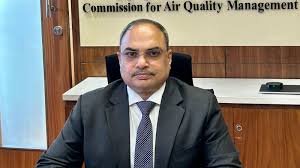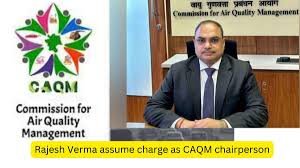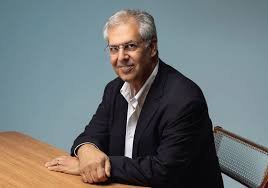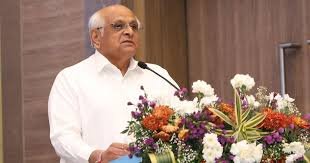Rajesh Verma Assumes Charge as CAQM Chairperson
Introduction to the New CAQM Chairperson
Rajesh Verma has recently taken over as the Chairperson of the Commission for Air Quality Management (CAQM). His appointment marks a significant development in the ongoing efforts to tackle air pollution in India. Verma, a seasoned administrator, brings a wealth of experience to the role, which is crucial given the increasing air quality concerns in various regions of the country.
Rajesh Verma’s Background and Experience
Rajesh Verma has held several prominent positions in the Indian administrative framework. His career spans various roles, including serving as the Secretary of the Ministry of Environment, Forest and Climate Change. His extensive experience in environmental management and policy implementation positions him well to lead CAQM and address the challenges related to air pollution.
Objectives and Mandates of the CAQM
The Commission for Air Quality Management was established with the mandate to improve air quality across the National Capital Region (NCR) and other areas facing severe pollution issues. CAQM’s primary objectives include formulating and implementing strategies to manage and mitigate air pollution, collaborating with state governments, and monitoring compliance with environmental regulations.
Rajesh Verma’s Vision for CAQM
As the new Chairperson, Rajesh Verma is expected to focus on enhancing the efficiency of CAQM’s operations. His vision includes strengthening data collection mechanisms, increasing public awareness about air quality issues, and ensuring stringent enforcement of pollution control measures. His leadership will be pivotal in advancing the commission’s goals and achieving significant improvements in air quality.
Future Directions for Air Quality Management
Under Verma’s leadership, CAQM is anticipated to adopt a more data-driven and integrated approach to air quality management. This may involve the introduction of new technologies for air quality monitoring, development of comprehensive action plans for pollution control, and fostering greater collaboration with local bodies and stakeholders.

Why This News is Important
Enhancing Air Quality Management
Rajesh Verma’s appointment as the CAQM Chairperson is a critical step towards improving air quality management in India. His extensive background in environmental policy and administration is expected to bring a renewed focus on tackling air pollution, which remains a significant challenge in many parts of the country.
Strategic Leadership for Effective Solutions
With Verma at the helm, CAQM is poised to benefit from his strategic vision and leadership skills. His experience in handling environmental issues will be instrumental in devising and implementing effective solutions to address air quality concerns.
Impact on Public Health
Effective air quality management has direct implications for public health. By leading CAQM, Verma will play a key role in ensuring that air pollution levels are reduced, which will positively impact the health and well-being of millions of citizens.
Historical Context
Background of CAQM
The Commission for Air Quality Management was established by the Central Government in 2021 to address the pressing issue of air pollution in the National Capital Region (NCR) and other severely affected areas. The commission’s formation was a response to the increasing air quality concerns and the need for a specialized body to oversee and manage air pollution control measures.
Previous Leadership and Challenges
Prior to Verma’s appointment, CAQM faced various challenges in implementing effective pollution control strategies. The commission’s previous leadership worked on developing frameworks and action plans, but there were persistent issues related to enforcement and coordination. Verma’s appointment signals a potential shift towards a more robust and dynamic approach in addressing these challenges.
Key Takeaways from Rajesh Verma’s Appointment
| Serial Number | Key Takeaway |
|---|---|
| 1 | Rajesh Verma has assumed charge as the new Chairperson of CAQM. |
| 2 | Verma has a strong background in environmental management, having previously served as Secretary of the Ministry of Environment. |
| 3 | CAQM is responsible for improving air quality in the NCR and other polluted regions. |
| 4 | Under Verma’s leadership, CAQM is expected to focus on data-driven strategies and enhanced public awareness. |
| 5 | Effective air quality management under Verma’s guidance will have significant benefits for public health. |
Important FAQs for Students from this News
1. Who is Rajesh Verma?
Rajesh Verma is the newly appointed Chairperson of the Commission for Air Quality Management (CAQM). He has previously held several key positions, including Secretary of the Ministry of Environment, Forest and Climate Change.
2. What is the role of the CAQM?
The Commission for Air Quality Management (CAQM) is tasked with improving air quality in the National Capital Region (NCR) and other severely polluted areas. Its role includes formulating strategies, monitoring air quality, and ensuring the implementation of pollution control measures.
3. What are the key objectives of CAQM under Rajesh Verma’s leadership?
Under Rajesh Verma, CAQM aims to enhance data collection, increase public awareness about air quality issues, and strengthen the enforcement of pollution control measures.
4. Why is Rajesh Verma’s appointment significant?
Rajesh Verma’s appointment is significant due to his extensive experience in environmental management and policy. His leadership is expected to bring a more focused and strategic approach to air quality management, which is crucial for addressing air pollution challenges.
5. What challenges has CAQM faced in the past?
Previously, CAQM faced challenges in enforcing pollution control measures and coordinating with state governments. The new leadership is anticipated to address these issues through more robust strategies and better implementation practices.
Some Important Current Affairs Links


















